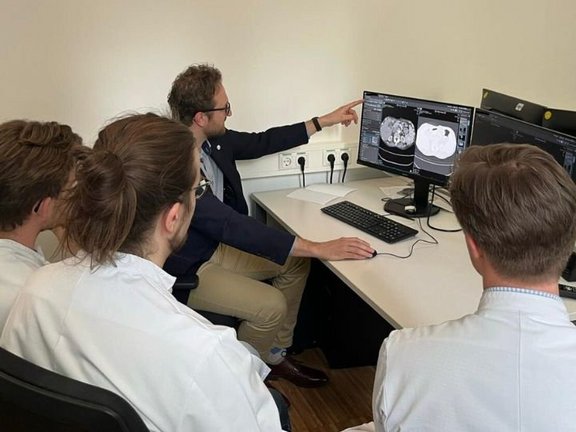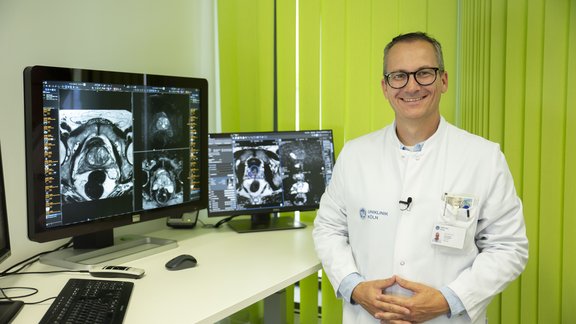Our expert Steffen Rupp recently visited the Technical University of Munich to continue the on-site BZKF BORN Roll-Out Trainings.
As mentioned earlier this month in a press release by the Bayerisches Zentrum für Krebsforschung (BZKF), the second funding for the BORN project was launched and the project is in full swing: the templates that were previously developed at six university hospitals are now being used and tested in their clinical routine.
What does the BZKF BORN project do? The goal of the Bavaria-wide Oncological Radiology Network (BORN) is to help patients and healthcare professionals across the state. The project carries out cancer imaging examinations in a standardized manner, evaluates them systematically, and establishes the requisite framework for data collection and exchange. It thus creates a globally unique data base for diagnosing and treating cancer.
Mint Medical and Brainlab are working closely with the university hospitals and the Bayerisches Zentrum für Krebsforschung (BZKF) to establish uniform and structured reporting in oncological imaging, as well as to develop a secure IT infrastructure for the capture and exchange of data.
(Image shows anonymized demo case.)
Further information about the project is available here: www.bzkf.de/born/



